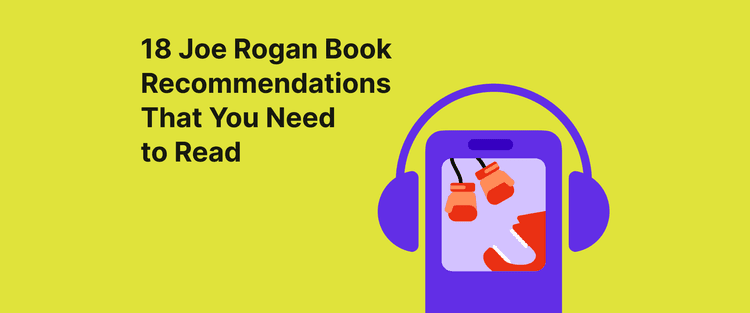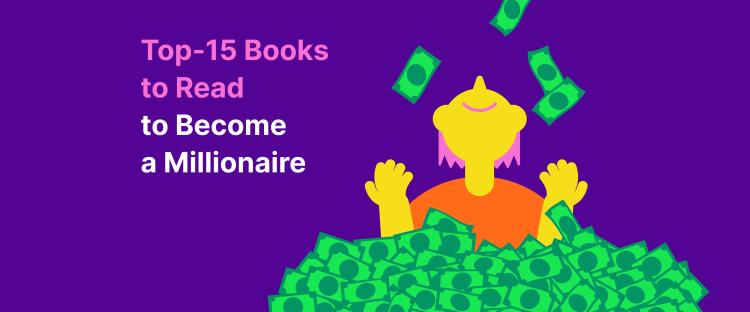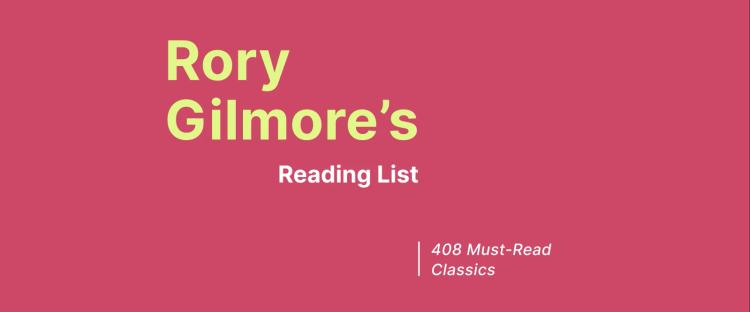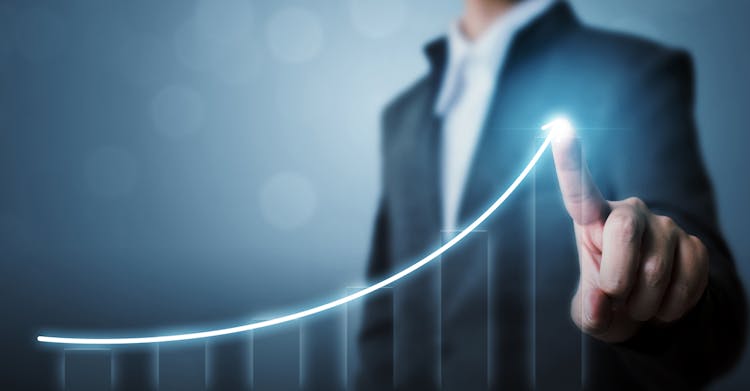Curious about Steve Jobs' favorite books that inspired his legendary creativity and leadership? We’ve compiled a list of fiction and nonfiction bestsellers, from George Orwell’s '1984' to Frances Moore Lappe's 'Diet for a Small Planet,' that shaped his creative genius. They'll help you develop a consistent reading habit and shape your personal philosophy when it comes to leading a team, launching a startup, or simply boosting inspiration.
These books, among others, influenced Jobs' unconventional thinking and helped him create a cutting-edge, user-friendly brand identity that made Apple a modern tech giant. Here you'll find 20 inspirational books Steve Jobs had read himself and would have recommend to all book lovers.
Many of these works are available in Headway's library of book summaries — your personal collection of bestsellers in text and audio formats. So, if you want to learn more about Machiavellian leadership, Sun Tzu's military strategy, and other growth-driven topics, here's your sign to get our book summary app now!
Steve Jobs' reading list: Top 5 picks
'Atlas Shrugged' — Ayn Rand
'1984' — George Orwell
'Only the Paranoid Survive' — Andrew S. Grove
'Inside the Tornado' — Geoffrey A. Moore
'The Tao of Programming' — Geoffrey James
Keep reading to find more of Apple co-founder's favorite reads on self-development, growth, and innovation!
Steve Jobs' 15 best book recommendations to read next
Steve Jobs once said, "people don't read anymore," but he was certainly not one of them. Despite his intense focus on transforming technology, Jobs was an avid reader, with multiple interests from poetry and Bauhaus design to Zen Buddhism.
His diverse reading habits helped shape his creative genius and fuel the ingenuity that made Apple products a cultural phenomenon. Follow along for Steve Jobs' full reading list and top book recommendations.
1. 'Autobiography of a Yogi' by Paramahansa Yogananda
'Autobiography of a Yogi' is an account of an extraordinary life and the ancient science of Yoga and its time-honored tradition of meditation.
The autobiography presents a detailed portrait of one of today's most popular spiritual leaders. With engaging flow and wit, Paramahansa Yogananda tells the inspiring chronicle of his life.
This autobiography is at the top of Steve Jobs' book list as he arranged to gift a copy to everyone who attended his memorial service. Yogananda was responsible for introducing many Westerners to Hindu spirituality, meditation, and Yoga, famously including Beatle George Harrison.
Jobs read Yoganda's work for the first time as a teenager, and 'Autobiography' was the only book he downloaded to his iPad.
2. 'The Way of the White Clouds' by Lama Anagarika Govinda
Part spiritual guide and part travelog, 'The Way of the White Clouds' recounts the author's travels through Tibet before the Chinese invasion when pilgrimage to the country became essentially impossible.
Govinda's account is a poetic story of exploration and discovery as well as a sensitive interpretation of Tibetan traditions. 'The Way of the White Clouds' is composed of elements from several genres — spiritual journals, adventure narratives, anthropological field reports, and philosophical commentaries.
This Steve Jobs book is a document about a place and a way of thinking that is virtually defined by its mysteries. Govinda was a German man who converted to Buddhism when few Westerners made this journey.
The book's poetic writing and personal photographs bring his experiences to life. The Way of White Clouds adds to the growing selection of spiritual books that inspired Steve Jobs over the years.
3. 'Diet for a Small Planet' by Frances Moore Lappe
'Diet for a Small Planet' covers rules for a healthy diet and many recipes for protein-rich meals that do not include meat. World-renowned food expert Frances Moore Lappé shares a fascinating philosophy on changing yourself and the world by changing how you eat.
Jobs became a vegetarian after reading this book. As Jobs' spirituality was a large part of his story, so were his notoriously strict eating habits and enthusiasm for extreme fasts. A lot of this started when he read Lappe's work in college. Jobs credits 'Diet for a Small Planet,' inspiring him to swear off meat entirely.
4. 'Mucusless Diet Healing System' by Arnold Ehret
'Mucusless Diet Healing System' is another of Steve Jobs' favorite books on diet. It is an early text on the plant-based lifestyle but with a slightly more graphic premise: mucus-causing foods are the source of most illnesses, and by eliminating them, we can heal the body.
Professor Ehret has been referred to as the "father of naturopathy," and this book, which also advocates intermittent fasting, is seen as having paved the way for contemporary vegan diets.
In the 2013 Steve Jobs biography, Walter Isaacson notes that Jobs' dietary habits became even more obsessive when he read this book.
5. 'On the Road' by Jack Kerouac
A quintessential novel of America & the Beat Generation, 'On the Road' chronicles Jack Kerouac's years traveling the North American continent with his friend Neal Cassady. As Sal Paradise and Dean Moriarty, the two roam the country in a quest for self-knowledge and experience.
Kerouac's love of America, compassion for humanity & sense of language as jazz combine to make 'On the Road' a work of lasting importance. This classic novel of freedom & longing defined what it meant to be "Beat."
Daniel Kottke, a friend Steve Jobs met in his first year at Reed College, shares that he and Steve Jobs read this book before the India trip.
6. 'Be Here Now' by Baba Ram Dass
Jobs' enthusiasm for Eastern spirituality was a defining aspect of his worldview, and 'Be Here Now' is another seminal text that helped to popularize Yoga and meditation in the West.
This book describes one man's transformation upon his acceptance of the principles of Yoga and gives a modern restatement of the importance of the spiritual side of human nature. Ram Dass, an American-born academic, had a spiritual awakening after experimenting with LSD and inspired Jobs to visit India.
Isaacson writes that this book was one of the most profound texts on spirituality and enlightenment in Jobs' life. He says 'Be Here Now' transformed Jobs and many of his friends.
7. 'Moby Dick' by Herman Melville
'Moby Dick' is an 1851 novel by Herman Melville. The story tells the adventures of the wandering sailor Ishmael and his voyage on the whaling ship Pequod, commanded by Captain Ahab. Ishmael soon learns that Ahab seeks one specific whale, Moby Dick, a whale of tremendous size and ferocity white whale.
American writer Herman Melville's epic novel greatly influenced young Steve Jobs. Walter Isaacson highlights the similarity between the book's character Captain Ahab, who learned from his experience rather than intuition, and Steve Jobs.
8. 'Cutting Through Spiritual Materialism' by Chögyam Trungpa
Another pick in Jobs' library is 'Cutting Through Spiritual Materialism.' This book warns seekers against the pitfalls of ego in the search for enlightenment.
Trungpa, a Tibetan meditation master, explains that spirituality is not a process of self-improvement but of abandoning the self. These compassionate teachings serve to wake society up from false comforts. 'Cutting Through Spiritual Materialism' has resonated with students of spirituality for nearly thirty years — and remains prevalent to this day.
9. 'Meetings with Remarkable Men' by G. Gurdjieff
These are the memoirs of the great mystic and teacher who inspired a generation of disciples and followers throughout the Second World War.
In 'Meetings With Remarkable Men,' Gurdjieff introduces us to some of the companions he encountered in his travels to the most remote regions of Central Asia. With colorful episodes from his adventures, he brings to life the story of his relentless search for real and universal knowledge.
The book can be read as a colorful narrative or psychological autobiography. Still, the reader can better appreciate the meaning of its contents concerning the expositions of his previously published ideas.
Isaacson cites 'Meetings With Remarkable Men' as one of Steve Jobs's favorite books. On Jobs' spiritual journeys, he derived inspiration from others who had embarked on similar quests for knowledge.
10. 'The Lazy Man's Guide to Enlightenment' by Thaddeus Golas
A bit lighter than some other spiritual guides on Steve Jobs' reading list, this "underground classic" is built around simple steps a person can take to live a more conscious and joyful life.
Thaddeus Golas, a noted philosopher and self-proclaimed 'lazy man' who hung around San Francisco in the 1960s, emphasizes that spiritual development doesn't have to be the grueling process of discipline and self-denial it's sometimes made out to be.
11. 'Hindu Mysticism' by S.N. Dasgupta
This 1927 classic is a systematic introduction to Hindu mysticism as it evolved in India through the ages. It briefly outlines some of the most important types of mysticism, indicating their mutual relations, sometimes genetically and sometimes logically.
These include early sacrificial, Upanisadic, Yogic, Buddhistic, Classical, and Popular Bhakti cults. The book explains their main characteristics concisely and clearly, basing the interpretations directly on the sources.
'Hindu Mysticism' is another book Steve Jobs is said to have read before his trip to India with his friend Daniel Kottke.
12. 'The Collected Poems of Dylan Thomas' by Dylan Thomas
'The Collected Poems of Dylan Thomas' contains poems that Thomas decided best represented his work. Born in 1914, Thomas is perhaps Wales' best-known writer.
He is widely considered to be one of the major poets of the 20th century, and many of his greatest poems, such as 'Fern Hill' and 'Do not go gentle into that good night,' remain among the nation's favorites.
His legacy has continued to influence generations of writers, artists, and creative mavericks: Bob Dylan changed his last name from Zimmerman in an homage to the poet.
The Beatles drew his likeness onto the cover of Sgt. Pepper's Lonely Hearts Club Band. Christopher Nolan transformed the poem Do Not Go Gentle into That Good Night into a narrative centerpiece of his film "Interstellar." This poetry collection is said to have inspired Jobs in his early years.
13. King Lear by William Shakespeare
King Lear is a famous tragedy play written by William Shakespeare. It depicts the main character's slow descent into insanity. This play studies the correlation between appearances and reality.
In his last year of high school, Jobs read King Lear. He mentioned that at that time, he often listened to music and mainly read literary works unrelated to science and technology. The tragedy in King Lear was very impressive for the young Jobs.
14. 'Zen Mind, Beginner's Mind' by Shunryu Suzuki
In the forty years since its original publication, 'Zen Mind, Beginner's Mind: Informal Talks on Zen Meditation and Practice' has become one of the great modern Zen classics.
Suzuki Roshi presents the basics — from the details of posture and breathing in zazen to the perception of nonduality — in a remarkably clear way that resonates with the joy of insight from the first to the last page.
It's a book to reflect on repeatedly as an inspiration to practice. During Steve Jobs' first year at Reed College, Jobs befriended Daniel Kottke, who went on to work at Apple.
Together, they devoured books on spirituality and meditation. Shunryu Suzuki's 'Zen Mind, Beginner's Mind,' is considered one of their favorites.
15. 'The Innovator's Dilemma' by Clayton M. Christensen
'The Innovator's Dilemma' is the only book related to business and tech that consistently makes it on Steve Jobs' reading list. It is one of the most famous books chronicling how innovation takes place and why it's common for market leaders and incumbents to fail to seize the next wave of innovation in their respective industries.
Christensen argues that in the pursuit of profit, entrepreneurs will hold tight to tried-and-true best practices, undermining their ability to respond to disruptive technologies.
Apple is sometimes praised for avoiding this very common trap, which may be because Jobs was such a devoted student of Christensen's book.
Create your favorite books list with Headway
Whether you are looking to follow Steve Jobs' footsteps and start a career in technology or further your education with valuable insights into philosophy and spirituality, using a smart learning tool such as Headway will help you learn faster.
Our collection of nonfiction book summaries on leadership and self-growth contains must-read titles fit for a CEO, entrepreneur, and career switcher alike:
'Enlightenment Now' by Steven Pinker — a book that shows us how the values of reason, science, and humanism have brought progress to our world.
'The Four Agreements' by Don Miguel Ruiz — a roadmap to enlightenment and freedom.
'The Lean Startup' by Eric Ries — real case studies from different businesses on building and managing successful startups.
'Crushing It!' by Gary Vaynerchuk — valuable insights on building your personal brand and using social media to your advantage.
'The 48 Laws of Power' by Robert Greene — a bestselling guide on leadership and negotiation strategies.
Do you want to read Steve Jobs' favorite books without sacrificing time away from your career and personal life? Download the Headway app for 15-minute text and audio summaries of global bestsellers, and build your own reading habit today!
Frequently Asked Questions
Is there a book about Steve Jobs?
Walter Isaacson's 2013 biography, 'Steve Jobs,' takes an unprecedented look at the books that first made him think differently. Many of the titles in Isaacson's book offer disruptive new ways of thinking on diet, mindfulness, Eastern philosophy, alternative medicine, culture, and politics.
Which book inspired Steve Jobs?
This Steve Jobs reading list takes a comprehensive look at some of the diverse books that changed his life. Autobiography of a Yogi by Paramahansa Yogananda, Diet for a Small Planet by Frances Moore Lappe, and The Innovator's Dilemma by Clayton Christensen are a few books that are consistently considered to be some of Steve Jobs' favorite books.
What was Steve Jobs favorite poem?
One of Steve Jobs’ favorite poets was Dylan Thomas. He was particularly fond of Thomas’ poem "Do Not Go Gentle Into That Good Night." The poem speaks to the resistance against inevitable death, which resonated deeply with Jobs, especially during his battle with cancer.
Did Steve Jobs read a lot?
While Steve Jobs famously once said that "people don't read anymore," he wasn't one of them. The innovator, salesman, and tech and marketing visionary was also a prolific reader with a penchant for poetry, Bauhaus, and Zen Buddhism. His eclectic reading list gives insight into the visionary man who changed the world forever.
What is Steve Jobs' 10-minute rule?
Steve Jobs was known for being extremely disciplined with his time. His "10-minute rule" refers to his ability to work intensely and focus deeply in short bursts. Jobs would often tackle tasks with full attention and precision for 10-minute intervals, which helped him maintain high levels of productivity and creativity in his work and decision-making processes.
What Yogi book did Steve Jobs read?
At the 2011 memorial service of Steve Jobs, attendees were handed a small brown box on their way out that contained a copy of Paramahansa Yogananda's book, 'Autobiography of a Yogi.' According to Walter Isaacson's biography, Jobs first read the 'Autobiography of a Yogi' as a teenager, then reread it in India and has read it once a year ever since.
In 1974, Jobs traveled to India, seeking spiritual enlightenment. Apple co-founder had an incredible realization that his intuition was his greatest gift, and he needed to look at the world from the inside out.
What books do billionaires read?
Billionaires, including Bill Gates, Warren Buffett, and Elon Musk, often recommend reading books on business, leadership, and personal development.
Some common books they read or recommend include 'The Intelligent Investor' by Benjamin Graham, 'Principles' by Ray Dalio, and 'The Lean Startup' by Eric Ries.
These books focus on strategy, long-term thinking, and understanding markets, all of which align with the mindset of successful entrepreneurs and leaders.







